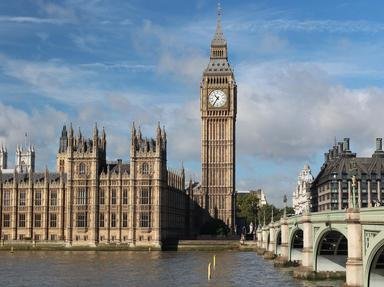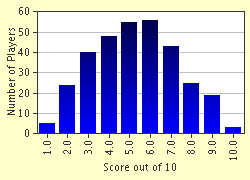Quiz Answer Key and Fun Facts
1. Where and when was Winston Churchill born?
2. Where did Churchill continue his education after leaving Harrow?
3. When did Churchill first become a Member of Parliament?
4. During WWI Churchill came to be associated with a military disaster. Which of these was it?
5. In 1918-20 Churchill identified himself closely with anti-Bolshevist intervention in Russia, and remained rumbustiously anti-Communist for a very long time indeed. When did he say, "Communism rots the soul of a nation ..., makes it abject and hungry in peace, and proves it base and abominable in war"?
6. From 1924-29 Churchill was the (Conservative) Chancellor of the Exchequer. Which of these events is Churchill associated with?
7. When did Churchill start his warnings about Nazi Germany?
8. When did Churchill first become Prime Minister?
9. In the late 1940s Churchill favoured European integration.
10. Winston Churchill died on 24 January 1965 and was given a state funeral in St. Paul's Cathedral. Where is he buried?
Source: Author
bloomsby
This quiz was reviewed by FunTrivia editor
gtho4 before going online.
Any errors found in FunTrivia content are routinely corrected through our feedback system.

